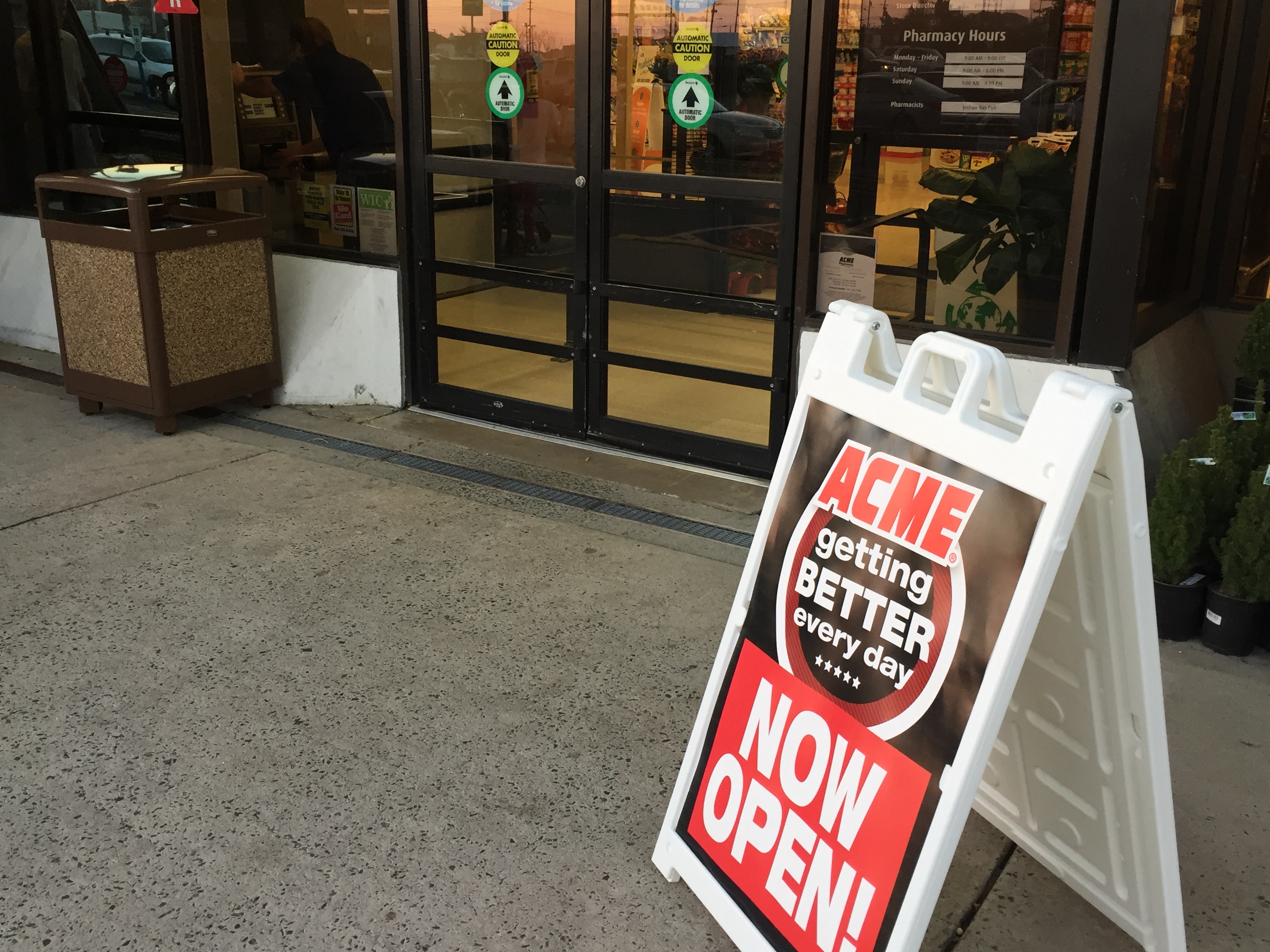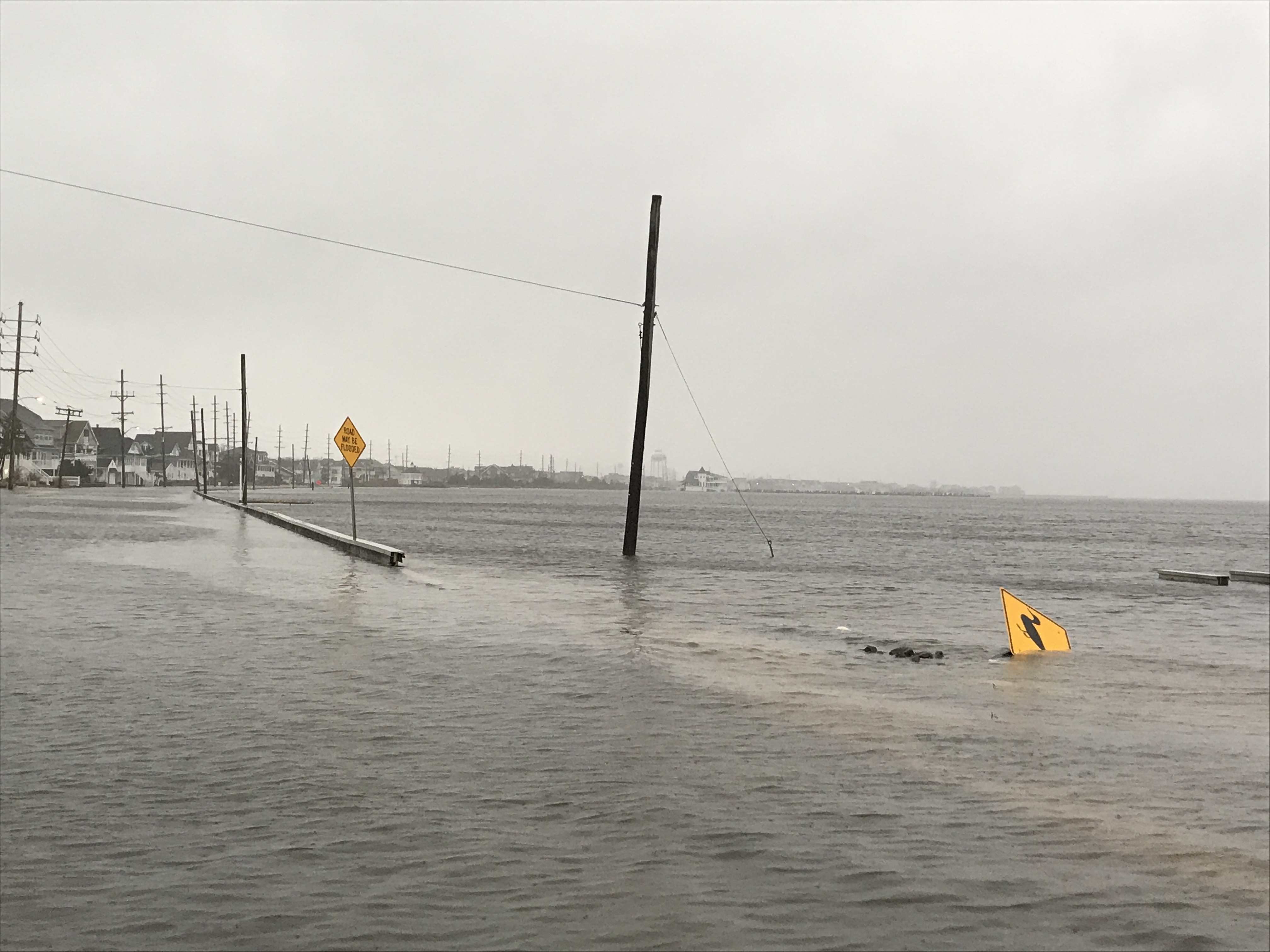Some made it through Superstorm Sandy, but will New Jersey’s highest-in-the-nation property taxes be the ultimate death knell for the middle class in the areas closest to the state’s beaches and bays?
Residents in Ortley Beach recently sat down with Shorebeat to discuss, over dinner, their concerns as two candidates vie to become the Garden State’s next governor – Democrat Phil Murphy of Republican Kim Guadagno. In solidly Republican Ocean County, its barrier island communities are as “red” as mainland towns, but residents’ opinions tend to be more diverse because of the mix of transplants and retirees who move to the area from across the state. In recent years, Toms River’s Democratic council slate has included barrier island residents, and Brick’s current council president, a Democrat, lives on the island.
Their opinions on the current governor, Republican Chris Christie, vary widely. For some, storm recovery programs under his administration helped rebuild individual homes and critical infrastructure. For others, the programs were a disaster. But most of Ortley Beach’s residents have one thing in common – a question as to whether they’ll be able to remain in their neighborhood if the state’s property taxes continue to creep up, or accelerate under a new administration. Ortley Beach residents’ homes tend to be valued higher than many of Toms River’s mainland properties, meaning they shoulder a higher than average burden on the tax scale from the start. The group who participated in Voting Block, Shorebeat’s partnership with a number of news publications across the state that has tracked the residents of one neighborhood during the gubernatorial campaign, have squarely focused their personal concerns on affordability, taxes and the way future municipal and school district mergers will be handled – if the state decides to crack down on home rule.
As for the continuing Sandy recovery – billions of dollars in ratables have yet to return in Ocean and Monmouth counties – residents are discouraged, and believe it’s an afterthought to both candidates.
“Neither of them even mentioned Sandy recovery in the debates,” said Paul Jeffrey, a Bay Boulevard resident who once served as president of the Ortley Beach Voters and Taxpayers Association. “They don’t recognize that there is still a lot of work to do. I was astonished. The Shore doesn’t seem to even be on their radar.”
A large impediment to recovery – and to the state’s economy as a whole – are the regulations business owners run into when opening up shop here, all agreed. The group of residents sat down to have dinner at Mia’s, an Italian restaurant on Bay Boulevard that reopened just a few months ago after being destroyed in the storm. It took just under five years for its owners to obtain the permits and licenses required to reopen, they said.
“It is a very tough situation, and we’re in a place where we don’t have salaries growing every year,” said Ortley resident Peter Conrad, who wonders what the area will offer to his daughter, who is now in elementary school. “You feel like you’re getting very little back – you feel like you’re feeding an engine where politicians are simply paying each other.”
It comes down to affordability, he said. Places like Ocean County do not have ready access to the job markets in Philadelphia and New York, but still must bear the cost of living and tax burdens that wealthier areas may be able to better manage.
“I have kids in the school systems here,” Conrad said. “It would be nice to have some flexibility, collapse school districts and send students to the right place for them instead of the right place for the [Board of Education].”
His daughter, for instance, would have cross a bridge to go to school in Toms River while Lavallette Elementary School is just a few blocks away. Instead he pays tuition, on top of property taxes, to send his daughter to the neighborhood school, which is legally in a separate school district.
“The whole idea of paying for schools with property taxes is insane,” said George Strathern, a retired U.S. Army veteran who is concerned over whether his fellow senior citizens are one tax hike away from being ousted from their homes.
“It ought to be based on income rather than the property you live in,” Strathern said of school funding, opining that the value of the home one may have lived in for decades is not necessarily indicative of income.
Strathern said the state should expand a veterans’ property tax credit that has stagnated for decades at $250 and put a more solid freeze on senior citizens’ tax bills.
Conrad is equally worried about future generations’ ability to remain in the area where they grew up. Even if the state were to provide more money to local schools, that doesn’t solve the issue of affordability, he believes.
“Instead of just bringing the tax dollars down here, bring the jobs down here,” he said. “If we had more opportunities, we could more easily support the cost of living without having to soak the people on property taxes.”
“Look at Atlantic City – the state just kept pulling money out of the casinos instead of supporting job development,” Conrad added.
Then there is the transportation issue.
“It costs a fortune to go to New York,” said Lauren Kelly Lanigan, an Ortley resident who is a former NJ Transit employee.
All of the residents agreed high-speed rail service to the cities could help stem the tide of year-round families leaving the Shore area in search of jobs in other states.
The group also said the state should be proactive in preparing for sea level rise, looking to Europe to study those countries’ experiences with building flood gates and developing technologies to mitigate flooding as the climate warms.
As for the two candidates – no member of the group expressed excitement over either.
“One seems to be far to the left, and one is part of the last eight years of failure,” said Strathern. “There isn’t much of a choice here.”
Still, the entire group had connected with Guadagno’s characterization of Muurphy as someone who would ultimately raise the property tax burden for suburban communities, even when they also saw some positives in his message of economic development.
“I’m not convinced that pouring money in is going to grow the economy, while the regulations and taxes are still here,” said Jeffrey. “It’s not so much that I’m against what [Murphy] wants to do, I just don’t know where he will get the money.”

Advertisement

Seaside Heights & Seaside Park
Seaside Heights School Board Seeking More Participation, Will Change Meeting Times

Police, Fire & Courts
Seaside Park Man, 68, Charged in Fatal Crash With Pedestrian

Ortley Beach & North Beaches
Lottery Ticket Worth $10K Sold at Ortley Beach Acme

Ortley Beach & North Beaches
Abandoned Private Island ‘Mansion’ in Barnegat Bay Poised for Demolition








